Articles published in July, 2025
As seen from Europe, in those days (maybe still today) Afghanistan seemed a very distant country, but for me then in Kabul, France seemed just around the corner. Having to cross Iran and Turkey and the Balkans to get there seemed to offer no problem at all – how different my attitude from when I started in North Africa. The exigencies of travel didn’t bother me, but after three and a half years on the road I was tired, and glad of company to lift my spirits. Ted Holst and his oriental companion were also going my way and a loose relationship with them was comforting.
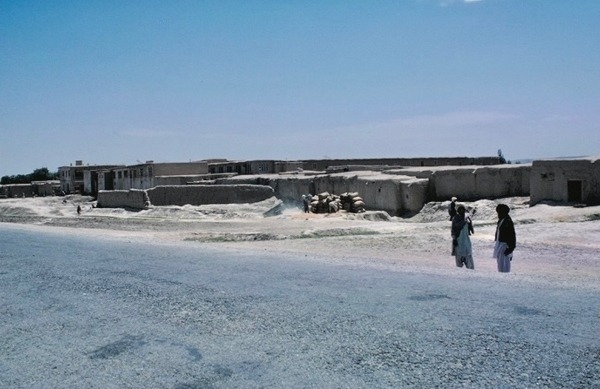
Scenes from Afghanistan
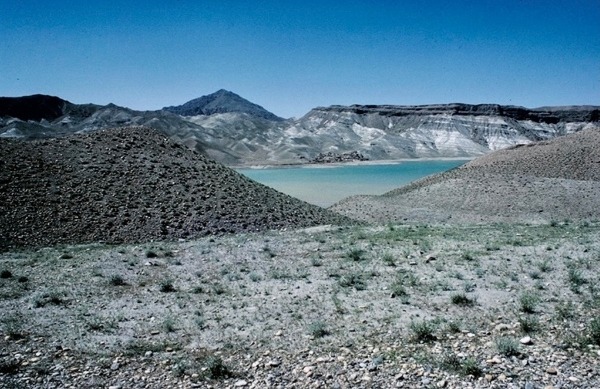
On the road to Kabul
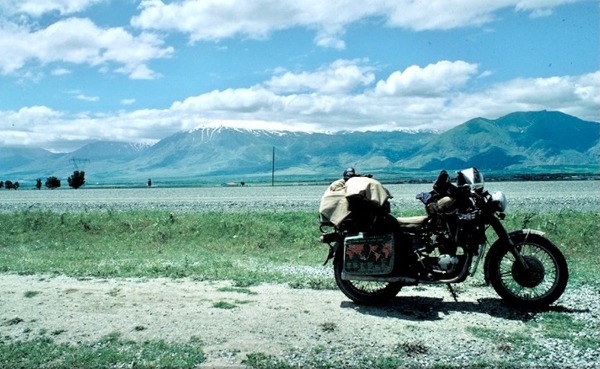
My first poppy field
Tuesday, May 17th
Met Holst and Mina-san again in the Miami restaurant two nights ago. Yesterday we ate dinner at Sikris – getting a lift in a Mercedes from young man whose wealth had not saved him from the army. Meal was too rich. Ted was very sick. I was less so. From what? Mina later became sick, and hers lasted longer. Yesterday I called consulate. Afghan employee called Dona. No reply yet. Most of my week in Kabul has been spent recovering my centre of gravity. Had been unable to find myself.
[An anthropologist friend in London had recommended that I visit an American, Louis Dupree, in Kabul. Three years later he was still there – an established luminary, very much a Southern Gentleman – living in a house with Nancy Hatch. He was welcoming. Also at his house I met again Peter Wass whom I had met in Nairobi, when he gave me the elephant hair bracelets for his sister in Queensland.]
Particularly bad last Friday on my first visit to Dupree’s house. (Louis and Nancy Hatch). The five o’clock follies. Louis talks like a man who hopes his words will hold the sky up. – “hot as pussy on a Saturday night in a mining town,” his elaborate Southern metaphors are overdrawn. He specialises in iconoclasm but it’s not quite profound enough – not integrated. Second visit on Monday was much better for me. Extraordinary meeting with Peter Wass. He interrogates Dupree on Africa in general. What crops, etc, in particular. They are sparring. Both are basically contemptuous of each other but maintain a wary respect. Wass admits to trying to do good. Dupree claims to have given it up (when I labelled them as agents of progress.)
They discuss – we discuss – the effects of taking roads to the villages. Brings the city entrepreneurs direct to the peasants, who are no match. The despised middleman is cut out, but he was the buffer and has his uses.
Louis castigates the Helman dam and irrigation project. He says it is silting up – ‘not administered’ – i.e the Afghans now in charge don’t do it properly. (It’s a US project but they didn’t carry it right through.) He prefers many small catchments on a village scale. His slogan is “take the politics to the villages.”
Wass is part of a UK project to stabilise wheat prices in the general area. Once based in Beirut – now in Amman, where he and Diane live. “We fight furiously once a fortnight but thank God we have a normal marriage” – referring to his sister and Brian Adams.
Nancy does a guidebook.
At Embassy my first meeting is with Ian Hughes – Acting vice-consul, probably the Security/Intelligence man. Very bland, close and maladroit. “Funnily enough I read your piece about Australia in the magazine.” No comment. Are you busy? I ask. Rather, he says, with all the Hippies. After work? I prompt. Pretty tied up, he says. Are you staying a few days? Then I’ll probably see you around town, he says brightly. Wants nothing to do with me. I do see him around town once on Sunday morning in the impossible dark suit and high white collar, with the Embassy Land Rover, picking up smart tourists in Afghani coats – for the church service perhaps? Or to visit the jail? I am not psychologically fit to mix it with him and let it go by. They all behave as though an armed coup was imminent.
At the Green hotel heavily carpeted public rooms. English woman approaches me. Crisp upper-class style, but no courtesy. (“Show this man the bathroom”) She wants 30 Afs to [illegible]. I say I think 10 Afs is normal. “Good luck,” she says, and turns on her heel and strides off. Business is abrasive in Afghanistan.
[I had a fancy to buy a Russian samovar.]
The samovar hunt. In and out constantly. Once I’m offered one for $45. Next day it’s refused. Another time I’m offered another for the price. When I go back to get it the brother says, “No it’s not ours. I’m just repairing it for some Germans”. But the shops are loaded with goodies. Inlaid pistols, jugs, trays, mugs, knives, rugs, teapots, ‘lunch boxes’, etc. At the Kabul Hotel – a $10 bonus. Followed by rain and bedbugs. The Sikhs at the Khoresan constantly trying to diddle me out of a dollar and finally undercharging me. The Istanbul; 24hrs restaurant, and the splendid Abdul, whom I took for a Turk, perched cross-legged behind the counter with his high domed head and utterly cynical expression, though less cynical in fact than his young partner full of bonhomie and greed.
Today at consulate again., but no message. Dona says they’ll refer clearance to Teheran. So I set out for Ghazni [about 100 miles] to catch up with Holst.
The over-friendly man in the US car who leads us too fast into town.
“You want a ho-tel? Come on!” His room for 120 Afs. “Special student price.” Hah!
The robes worn by women – finely pleated. Underneath, often trousers and shoes by St. Laurent – quasi.
Russians walk leaning forward from the waist, shoulders back.
Traffic police dressed like Germans – in grey one-piece suits. With lots of straps and belts. Was it Calcutta where the police wear a harness to support an umbrella?
Ghazni:
Hotel with Persian name. Wide street of dirt. Horses and carts dashing past, full gallop. Later find Holst at campsite. Next to Col. Gregory’s broken down Comex bus (Commonwealth Expedition.) Fleet of seven buses named after Commonwealth places. Ie. Ontario. Old style enthusiasm. Finale at Wells Cathedral service.
Then comes Das Rollende Hotel. [A German invention seen on the road: A bus with a trailer that sleeps 39 people.] Thirty-nine cells in three layers. A heap of diarrhoea 3 yards from the entrance with a piece of toilet paper, attached like a flag.
It is assumed that because people enjoy themselves, what they are doing must be OK. People enjoy themselves in war. The hardships are what weakens their enjoyment. The trick is to get them to volunteer their money and themselves in the first place.
Great dust storm blows up – lasts for an hour. Then clear night.
Wednesday, 18th
To Kandahar. Lose Holst. Find Aria hotel. Comfortable. 25Afs. Lungful of Hookah hash smoke nearly kills me. Frenchman, hair in long black ringlets and black lace shirt with trim mustache and beard like decadent young blade of 18th Century. [He was fondling and polishing a brick of hash to smuggle through Iran and Turkey. I thought it better not to mention it in my notes. I always wondered whether he made it through, having seen “Midnight Express”]
Still with the brothers at Jhellum Bridge.
May 8th
The breakfast ceremony is a continuation of yesterday. Parathas, French toast. Hamid ever watchful, suggests that paratha leaves a burning sensation in the stomach. Too much food?
I take two family portraits. The hookah is out of place – the wrong kind for Pathans. A Punjabi policeman insinuates himself with it. My mistake. Hamid is patient, but disapproving.
During the day beginnings of a great lightness of the spirit, a reawakening of joy. At the border I watch each step with suspicion, hope, anxiety barely concealed – like one escaping from a maze. What are the indications? Fewer people, more space, less detritus as the watching multitudes recede. Now there are individuals, recognisable people.
Road to Rawalpindi. First much eroded land, then farmland. R has a very well-ordered look – at least in the cantonment area. At Intercontinental [Hotel] I drop in and ask for Clifton. [Who? I don’t remember him.]
“Yes, he’s registered,” but has gone to Taxila by car. I am not going to risk an anticlimax while the going is good. I leave a note, and on to Peshawar.
Good roads. 50mph. Over the Indus where a huge fort dominates a confluence (as at Mulhausen?) At Peshawar find myself outside the Intercon. again. Ask here for cheap hotels. Very helpful. List of four. Dean’s; John’s; Park; and Sharazad. Starting at 135 rps to 35rps.
Doorman has hennaed beard. Outside Nazeer is taking the air. I talk to him. He offers me hospitality. Everything pours out of him in a burbling stream of words. His life, his romances, his poetry, the praise that has been heaped upon him, his career at the hotel, the army. He needs only an audience. I know I must ration him. Escape to eat at Al Shiraz. There I meet the owner’s son, a man of considerable conceit, barely contained, in blue tunic and trousers. A minerologist, who prospects for ores and gems. He does not believe in God. He has travelled. He understands the international political scene. He knows there is a plan afoot to disrupt Pakistan though he doesn’t know where its headquarters are. In the meantime he always makes his own track, because where there is a man-made track people will always have reported anything there. On the other hand people are very ignorant of the possibilities. He found diamonds where some villagers were living and showed them. They had seen them but were not interested. He always takes company on his treks, but only to divert himself. They trek 35 miles a day. He never leaves a mossy stone unturned. My flattering attention earns me several cups of tea from fine china.
(Footnotes: Looking at a shaven Westerner in the Istanbul. “Bodhgaya is a long way to go for a haircut,” and, “The truth is a matter of degree.”)
Peshawar: Two stories, narrow wooden balconies protruding in old houses. Narrow alleys winding uphill. Kebab roasting, fanning charcoal, cow meat on display, impassive detached faces. Fairly quiet.
Arif on sexual starvation: “The Indians were our slaves” – to explain the low value they place on individuality.
“Indians are very superstitious.”
“Prostitution must be allowed, otherwise prostitutes will mingle with society and corrupt the innocent.”
“Children must be taught to fear their elders. I have made my children afraid of me. Deliberately.”
“Our women are naturally modest. They do no wish to mingle with strangers, particularly men, so they do not go out of their home aimlessly.”
“Now there are women doctors, lawyers, etc. and girls get a better education. The men do not resist too much.”
He climbs the mountain opposite every morning and night. All is very deliberate, to prepare for the next moment. No room for surprise. Is that why visitors are made so welcome? The village elder was there. I was asked to account for Hippies. There was some spitting through the lattice work of the beds, and Arif washed his mouth out on to the floor.
At first he was wearing crumbled blue shirt and trousers. Later changed into white trousers and top with waistcoat and skull cap. We ate mutton boiled and fried, in sauce with onion. Also some egg fried and roti and tomato.
Monday 9th
To Dara.
Tuesday 10th
To Kabul, through the Khyber Pass.
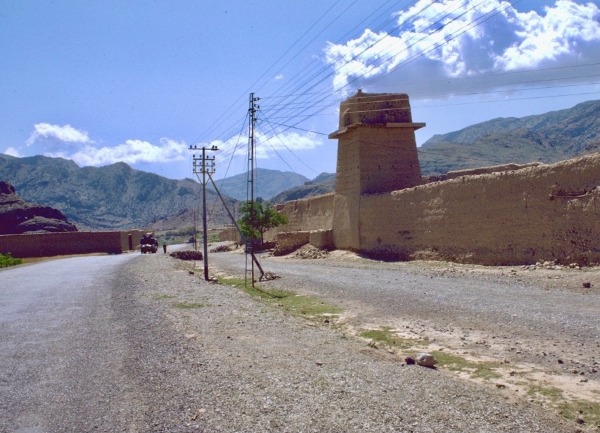
The famous Khyber Pass
Not impressive at first but later as I stop to take pictures some hostility. Frontier not too bad. $10 insurance.
[I arrive in Kabul.]
I’m looking for milk in Chicken street. The shop sells yoghourt, sausage, bread and milk. “Have you got fresh milk?”
“How much do you want? A glass?” I hesitate.
“Two glasses?” A pause.
“No milk,” he says and turns away. Not physically, but I cease to exist.
“One glass then,” but he is not aware. He walks through me, very close, to argue (is he arguing?) with a man across the road.
“But you said . . .” and he’s in full spate. On the doorstep I turn to face him, to make him pay attention. Impossible. I am not there. What a strange power. I’m outraged, indignant, humiliated (so often) I could hit him. That’s all. There seems to be no other response. Hit – – or run. I run – – at walking pace, reflecting, trying to overcome my seething resentment. On my bed, lately infested with bed bugs now lying on their backs below and still feebly brandishing their limbs, I am thinking about the uses of power. Should a person develop all his capacities to the full? Then power, backed by the threat of physical violence, is one of them. (At the same time, disturbed by the litter of things around me I am fiddling to reduce their number. Why does it make me uneasy? Am I occupying too much territory? Am I afraid of retribution for this aggressive act? Or am I afraid that if I’m attacked I shall not be able to get my things together in time to escape? I would have to stand and fight. Same thing, fear. And as I think about it, I know it, because I feel the dread adrenalin.)
What if the use of violence is denied. Does that mean there is no power? Think of the legless cripple on the highway. What power he had, on his trolley, laughing in the face of the world, taunting it, defying it to do him more damage. The power in his face, square, lined, cut to short bristle.
And the other, of Pondicherry, like the stillest black hole on the pavement, sucks the whole universe in.
Suddenly I’m excited by what these two cripples offer and represent. Power and love, though both are denied any physical means to fulfill what they express or attract. Everything could be said in terms of these two. Did I really understand Grass? [Gunter Grass?]
At last all the parts are together. I’ve said goodbye to Carol, expecting to be with her again in Europe, and I’m ready to leave Delhi for the border.
From Delhi, May 5th
Sprocket, chain and tyres on. Try to flog old parts, in vain. In State Bank involved in dubious transaction with Frenchman, who wants to double his cheques by losing them. I get what I want – unless the dollar bills are false. To Carpet Co. and Mani Prabakhar. Pay $40 deposit on carpet. Etc. Now midday. Undecided at house, I hang about a while, then pack. Hariom and Kari arrive and closet themselves. I decide to go.
Two awkward farewells. At 3.30, on the road. A last injection of 93 octane at the flyover. By 6pm I’m 90 miles along the highway and breathing again. Stop at Chatravarty Lake Tourist complex. Shunted from the far side of the road to the “Tourist Oasis”. Here a tent (big one) and bed with linen for 5 rps.
Buy a fresh frozen fish. Cook rice. Drink beer. Feed myself (and dog). Sleep. Get out. Sleep again. Get extra cover. Sleep again. All OK. Puri for breakfast. Leave at 9. Ride fast. Have three narrow escapes with buses. Driven off road on both sides – and forced to fall by rickshaw driver. Feel a destructive resentment working in me – and realise I must cool it – or die. Take a rest and go on more sensibly. Amritsar at 4pm.
I’m resisting all impulses to digress, to Simla or elsewhere. Rehearse conversations with people who say, “What a pity you didn’t see Kashmir.” Choose Ed as protagonist. Why? Youth Hostel greets me. Swiss traveller just came through border by bus. So that means OK. Tomorrow I’ll cross.
Find rice and beer. Then Golden Temple. Golden casket. Shirted Sikhs with spears, ancient ones with ancient rifles hugged to their chests. Inside, a small group of musicians – singer, tabla, harmonium – are amplified across whole lake and surrounding colonnades. Marble floors, inlaid. All exudes great air of probity, cleanliness, people at home with each other. At diagonally opposite corners, ladies serve copper dishes of ices water.
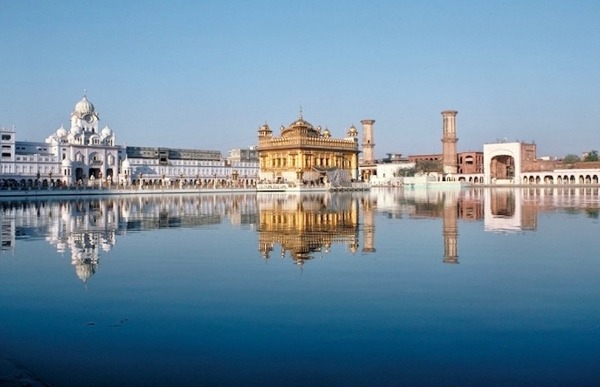
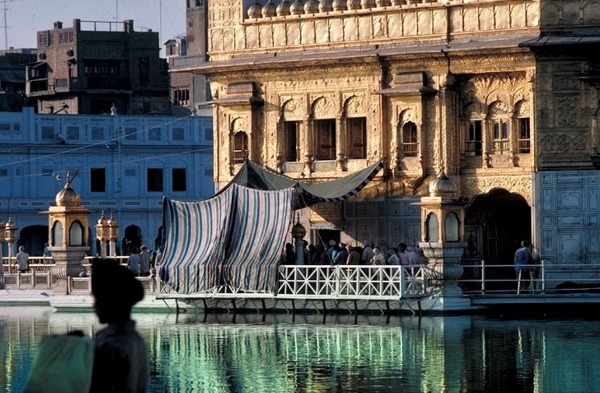
May 7th, Saturday
Last breakfast [in India]. Two boiled eggs, tea and a wafery bread shaped like palmiers.
To border – passing Emergency signs still planted firmly. [Gandhi lost the election, so Emergency is over.] The one I didn’t photograph: “Save the Poor. Support Prohibition.” Crossings fairly easy. Then long wait for obligatory police escort. He rides in bus ahead of me and it’s to save us from the army, not the rioters. Lahore is deserted but for buffalo herd moving apparently without guidance. Yesterday 2 or 22 people died after a curfew break to visit mosque. Now total curfew again.
We foreigners make a curious crowd in this vast, deserted space. Ted and his Jap. girl can’t find money to change. They’re sent to Intercontinental, three miles, but I’m eager to leave the atmosphere. How lucky to have bought those 100 Pak. Rupees in Nepal. The road is very broad and straight, tho’ seems to be going East rather than North. But it is night.
Stop for tea and get address of a curious man in shiny navy-blue pyjamas. His companion puts his finger on his throat and goes through the motion of the ‘strong man’. Then I get to the Jhellum toll bridge. Have just been planning my night. Flashback to Tahir and M’sud Khan. [Two Pakistani brothers I knew as a schoolboy.] Thought to invade some general’s quarters. But Hamid, the elder of a group of Pathans, takes me in.
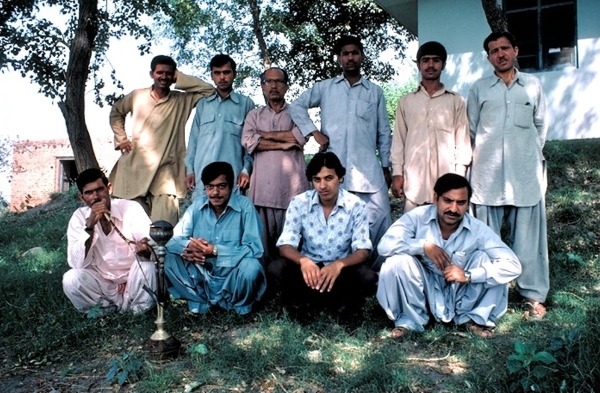
Hamid and the brothers had the business of operating the toll bridge over the Jhellum river. Quite unbidden, Hamid – top right – assumes the job of feeding me and making me comfortable for the night.
Makes up a couch for me. Brings me tea. Prepares bathroom. Another couch outside. More tea. Infinite courtesy. Much quotation from Coleridge, Einstein, Freud, Shelley, Persian poets, copies of “The Psychologist” from 1951. Dinner of roti and dahl. A walk on riverbank. A massage. A bed prepared. Great sense of peace by riverbank. Traffic hardly noticeable. Many birds. Castor oil plants.
Then, once in bed, under net, discomfort grows to an itching catharsis, as traffic roar becomes overwhelming. Eventually, after tossing and scratching for hours, give up. Faithful Hamid is there. He says it’s bed bugs. Prescribes kerosene. Tends me like a patient. Change beds, bedding, and at last sleep.
That book of Materia Medica by Adolphe Lippe MD. Calcutta 1935.
Last night: “How were the inert gases discovered? What new discoveries did this lead to? Where is God? I say that God keeps moving. In the 19th Century He was in chemistry. In the 18th in botany. Where is he now?”
Hamid is [like] an Irishman. “Now wouldn’t you say, Sir, that medicines are very dangerous? Where did you get this mosquito net. Sir. It is very marvellous. I have never before seen the moon in so many colours.” And I was expecting to be asked how much it cost! Goodbye India.
He said he hit his head many times as a child, which damaged his memory. He can’t recall his first five years, and this is a compelling urge in him. Studies homeopathy and natural medicine.
Next week: Back to the beginning.
Most of us “developed” people are in record breaking heat waves. Every single oil-producing state is ramping up production. I watch the human race committing suicide, and I am powerless. Might as well rob a bank. Thank goodness I’m 94.
The election is over. Indira Ghandi has gone. The Emergency and its regulations are over and profiteering is back in fashion. Meanwhile I’m in Delhi, waiting for news from London, waiting for parts (including a new sprocket without which I can’t hope to get home). Anyone who has travelled a longtime through dodgy parts of the world will know the demands made on patience. Usually I prided myself on being good with that, often turning delays into advantage, but this time lost my famous composure. Increasingly it seemed likely that the frontier with Pakistan might be closed, making it impossible to leave. As the temperature rose, I tried to keep my cool.
April 19th
Today got hold of a little theme – Survival of the Fittest – but for what. For selling to suckers at the highest price. Wills Flake Filter now up from 1.50 to 1.75, but no reason. Just that the change of Govt. gives license. Papers report that the trains are no longer running on time. “Chain pulling” is the reason given. Ticketless travelling on the increase, now that ‘Heavy Penalty’ no longer includes sterilisation.
Last night Ricardo and Sharafat played ragas. Tonight a TV recording session with Alikhan. In spite of this I wish I could get out of Delhi and on with it. Trouble in Pakistan is mounting. I’m eager to go.
[“So how do you like my India” – Agra]
[“Dear gentleman, this is India” – Sombalpur – Raipur]
Begin composing letters to my sponsors but decide to leave it. If I never heard from any of them again I’d have to look after myself anyway. Why make strife? So at Alikhan’s a called Lucas and there’s a cable about a package at Indian Airlines.
Recording (taping for the satellite) is pleasant but long-winded, and technically dull. Getting a feeling of the group now – Kari, Hariom, Kalidas, Sharafat. Saw Alikhan lose his composure for the first time, in our driving back, he was obviously in a hurry. Then the tabla player needed a lift to a taxi. We nearly went under a truck (well, I thought so) and later he went in opposite direction. I said I was going to a restaurant and regretted it when I was asked to eat at his house. Thoughtless of me. Silence is better.
Why didn’t Davies write a letter? Where’s PH’s letter? Why no word from Triumph? These things still mystify me.
April 20th
Pursuit of the package. There isn’t one. When it comes the airline will inform Lucas. The day passes in telling each other what we will do and what we have done. & the plot has grown to include a school friend cum customs agent. A letter to PH via B.Airways – cannot reach him before Saturday, meaning Tuesday. As I write this I plunge once again into the whirlpool of speculation, doubt, despair, defiance, anger, which wipes out all tranquility. I am full of ultimati, pronounciamenti, manifestos, and I always in my mind end up by marching off stiff-necked and bitter to my solitary destiny leaving all this useless human riff-raff behind.
Now this is a common problem with the ST, etc, but that alone doesn’t account for the number of times I find myself, in daytime contemplating the satisfaction of hitting someone hard. Usually the target is a motorist of some sort who I imagine is threatening my life with his folly. But I notice that when a lorry driver really does threaten me, I don’t waste much time concocting fantasies about him. The cathartic nature of the event seems to discharge the energy that fuels resentment.
Why am I so full of distrust and bitterness towards others? Because they won’t behave as I believe they should. Why is that? They don’t respect their obligations towards me. Why don’t they? Because they have lost interest in me, don’t care, think I’m foolish, lightweight, unimportant. If any one of them flatters me, pleads for my indulgence I offer it immediately and feel like a king. I’m less interested in positive results than in maintaining my self-esteem. The process brings constant anxiety. To protect myself I reduce my dependence on others to a minimum, which leads me into an unconventional life. This makes me more interesting to others and my ego receives a boost all round, but I can’t live as a hermit, and the fewer people I depend on the more intensely I depend. And eventually I’m undermined by that same fundamental hollowness. I have no sense of service to others though I have talked about it. (To Jo. eg). My mantra has been that what’s good for Ted is good for the world. Eventually others are forced to disagree.
A kite circles in the sky, a grand night, a great bird. But the kite is preoccupied by the pursuit of carrion and is harassed and irritated by small birds and parasites. If it could fold its wings and never fly again it would do so. If it could become a chicken.
At Delhi airport. Note the ancient Sikhs, like Father Christmas, driving taxis and scooters. They race along. Have been doing it since the motorcar was invented.
The airport/flying game is the biggest toy we’ve invented. It stretches us beyond our limits.
Some reflections suddenly about my journey, visualising the earth’s surface as I experienced it, without aid of maps or altitude figures. What does it matter if the Andes are at 12,000 feet. They are just very high. The way to travel is to go and ask along the way. The world unfolds from day to day, not as a preconceived journey to a tourist brochure. What have I gained from visiting the hallowed shrines of tourism? And when it comes to man-made marvels, better one Iguaçú than 100 temples. Even that unknown cascade near Eden overshadows the Taj. Certainly a great part of it all has been to set my mind at rest that there are no transcendental marvels that by their existence/presence change one.
Why do I resist describing the evil people do to each other, that is the cruelty of callous indifference or intolerant zeal? (i.e. Emergency excesses, Brazil versus Indians, etc) because I take it as an inevitable matter of fact. Who since World War can doubt what people are capable of? But the good people do, that surprises me. That’s worth talking about. And conditions which favour or deter human goodness are of supreme interest.
And the evil? Springs not from the heart but the mind, disturbed by the family, or lack of one.
May 1st
Carol goes to Agra. I sleep. Wake up. Go to Roberto’s. Michele and Bernhard are there. M&I engage in a Franco/English breakfast chat about politics and the role of the left in the new situation. I am totally devoid of interest, ideas, energy. None of it makes any sense to me. Am I as exhausted as I feel, or is it only the subject matter? What do I know about Indian village life? After all these months, nothing. And I don’t think M does either.
Endless time in Dehi does not pass, but revolves, the same time again and again. The weather builds to a torrid climax and breaks into daily thunderstorms.
The first break in the deadlock with England comes on Friday 22nd, after I have written, telexed and phoned to all and sundry. A cable from PH: The tyres are on Air India for 24th. On 23rd we talk and I let it flood out. He promises to get it all together. Now I discover that Meriden has used Air Parcel Post. On Monday morning the Foreign Post Office – a fruitless search. On Tuesday, at Lucas, the Waybill Number. Then Carol’s cable that she flies in that night. At first I’m horrified. The complications now seem overwhelming. Where will she stay? A-114 is under siege by the landlord. I feel I’m only just able to hang on myself. I see that Carol’s arrival will cost money, time and energy that I don’t seem to have. I can’t see beyond it, then in the depth of depression I see that the only thing to do is to enjoy it. With Sekhar I go to the airport – but too late to do anything. One of his school chums makes absurd remarks about getting the customs in an hour. The other fellow, Jagaranan, to his credit, is more sober. I take S to his house – the one that didn’t exist on Sunday – because he told me 8 282 instead of 8-282. Back to Palam and C flies in on the first evening Airbus from Bombay. I do enjoy it.
Days and nights with C on the floor of A-114.
Much coming and going, shopping, visiting, Thunder breaks. Phone connection succeeds. Cool. All seems good. Parts coming airfreight. But again Waybill number fails. C leaves on Monday night. Stormy ride to airport. Tricky but finishes well. I’m almost emptied. Then Tuesday afternoon from Kalidas’ house I get Waybill No. To airport. No sign of package. But I dramatise. At last they [Air India] discover it – having cocked up. Like a last fling at some fateful attempt to frustrate me. Still. Customs are on holiday. Next morning, Wednesday, I get my package, in two hours, sweating through every stage.
Sharafat’s father has arrived. Now very fragmented at house.
26,300 miles. Oil changed at 26,000.
Next week: To the frontier.
After I’d broken my leg in Kenya in 2001, I had to find somewhere in Nairobi to recover from the operation and I was helped a lot by Christopher Handschu, a German biker, tall, blond and dyslexic, who had settled there. He gave me a bed and helped me with work I felt unable to do myself. Here he is, on the ground outside his place, but 24 years later I’ve forgotten what it was that needed fixing.
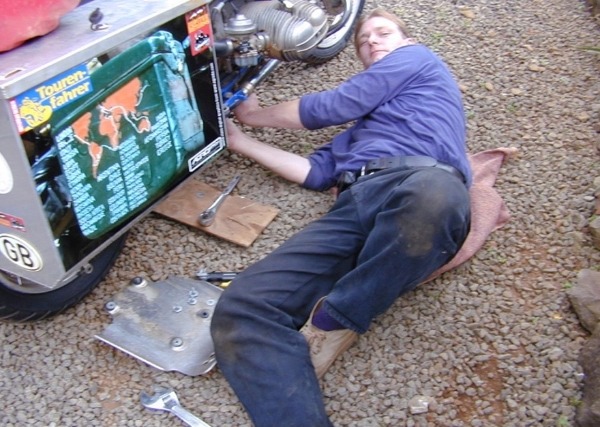
Christopher Handschu
Anyway, after I left he was able to start a hostel for travellers like me, called The Jungle Junction. I believe it had/has a good reputation. Last week, I got this letter from him.
Dear Simon,
Trust this find’s you well!
And thank you for always sending me your notes from your diaries. A grate way to encourage a dyslexic to read!
Today I would like to ask for your help!
After you leaving Nairobi, we started “Jungle Junction” and we are grateful that we have been able to offer travelers in Nairobi an oasis for 22 years.
Through a Public fund raiser we are hoping to finance the move to new premises, after our lease was terminated.
Would you agree to shear the Fundraiser link on your Mailing list?
Your consideration would be highly appreciated.
Thanks in advance Christopher Handschuh.
=-=-=-=-=-=-=-=-=-=-=-=-=-=
Jungle Junction
Langata – Karen/Hardy
Kongoni Road (JJ’s)
Kenya – Maps Google: http://goo.gl/maps/XyHxO
S: 1° 21.767″ E: 36° 44.438″
+254 (0) 722 752 865
=-=-=-=-=-=-=-=-=-=-=-=-=-=
So I wrote back saying I’d like to help, and he replied:
Thank you Ted, for your positive response.
I would not ask for assistance, if the situation would not be dire. It is hard for me to aske for Help – on the other hand i will not give up without a fight.
Sorry for the late response, was in bed with the Flu.
This is the link to the fundraiser. https://www.mchanga.africa/fundraiser/118438
Attached kindly find accompanying letter.
Your affords are appreciated, and if you have any suggestions on how to broaden the fundraiser, would love to hier them.
Kind Regards,
Chris Handschuh
=-=-=-=-=-=-=-=-=-=-=-=-=-=
Jungle Junction
Langata – Karen/Hardy
Kongoni Road (JJ’s)
Kenya – Maps Google: http://goo.gl/maps/XyHxO
S: 1° 21.767″ E: 36° 44.438″
+254 (0) 722 752 865
=-=-=-=-=-=-=-=-=-=-=-=-=-=
And here is the letter:
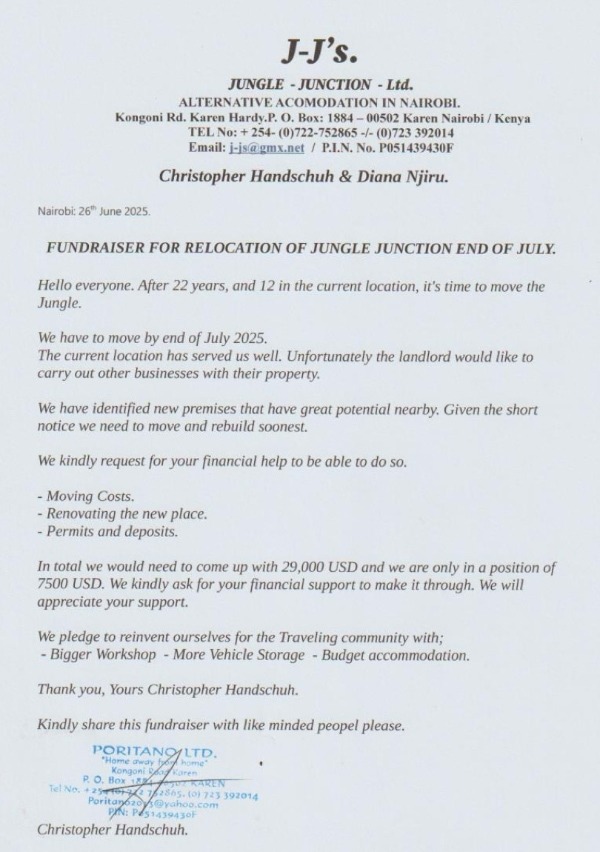
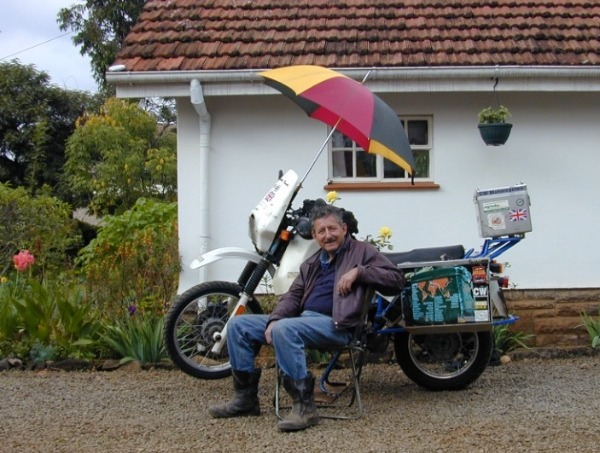
Outside Handschu’s home in May 2001
Thanks. See you next week – through the haze.










